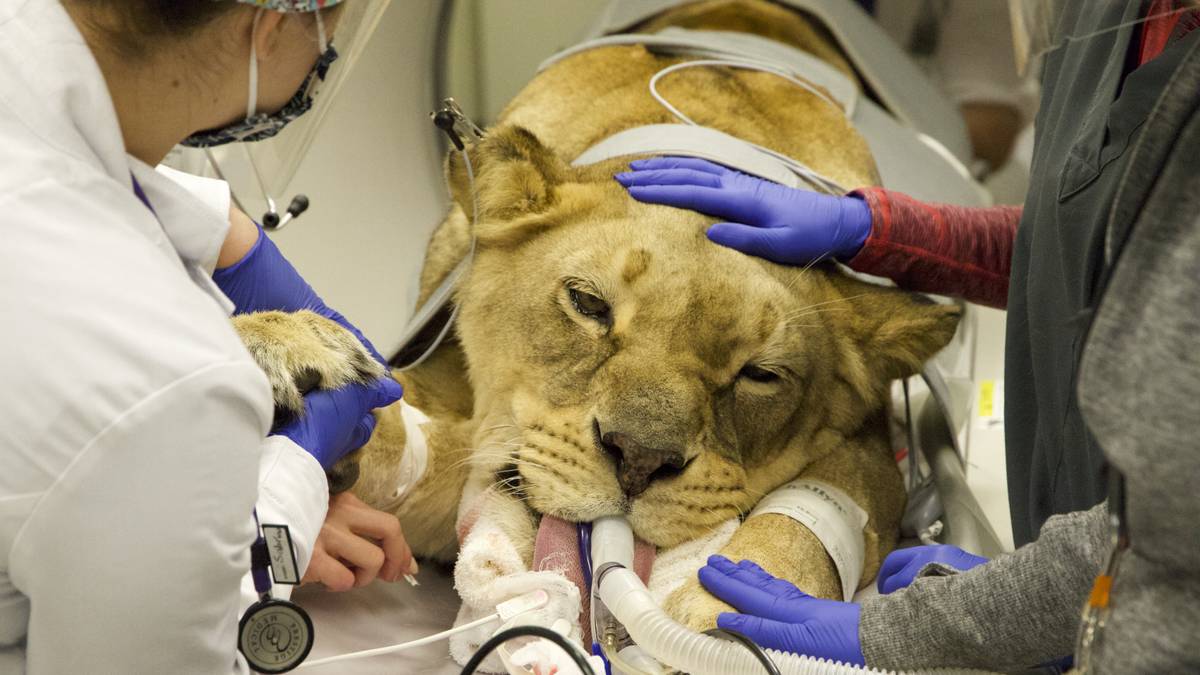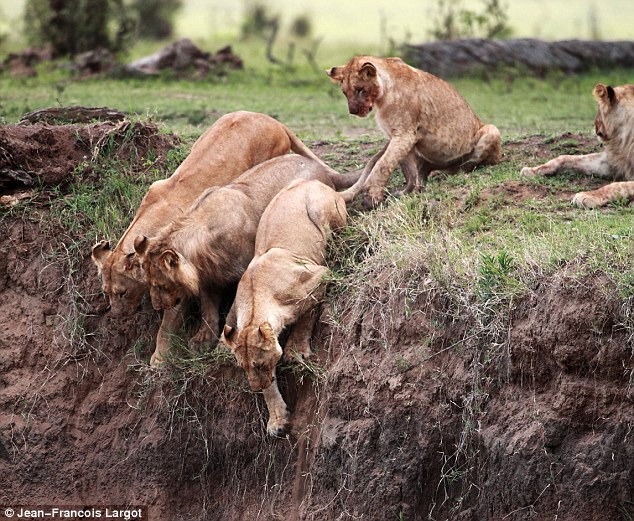A buck-toothed, 3-foot sea creature that bears a striking resemblance to a legless crocodile has been discovered stranded on a Virginia, USA beach by a man who has a knack for spotting these unusual beings.
This hulking, armored sea creature was found washed up on a desolate beach. As Allen Sklar drove across Assateague Island in Virginia, he spotted the creature lying motionless on the sand and immediately pulled over to take a closer look.
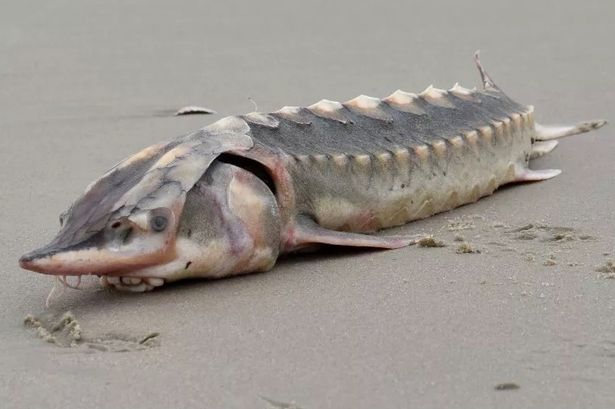
It quickly became apparent that this was no ordinary fish out of water but a bizarre-looking armored beast that harkens back to the time of dinosaurs. Measuring approximately three feet in length, the animal featured a pronounced overbite with its upper teeth exposed beneath an elongated pointed snout, as reported by Newsweek.
Fortunately for Allen, this wasn’t his first encounter with such a freakish creature, so he calmly snapped a photo of what he recognized as an Atlantic sturgeon.
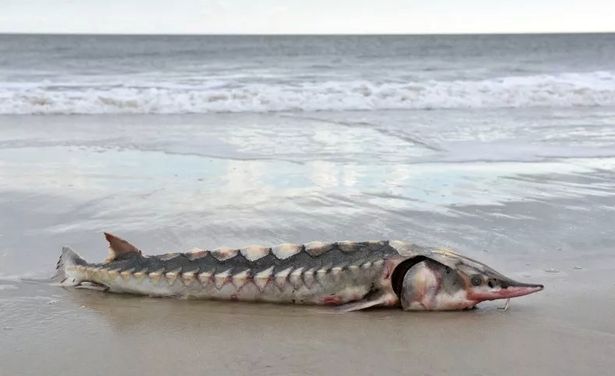
Allen said he found the fish on the beach at Assateague Island, a 37-mile-long strip of land, and quickly captured a few pictures of the creature. According to Allen, “I drive the 12 miles of beach about 100 days a year and so see a lot of stuff others don’t. This was the second sturgeon I have seen in 27 years of driving on the island.”
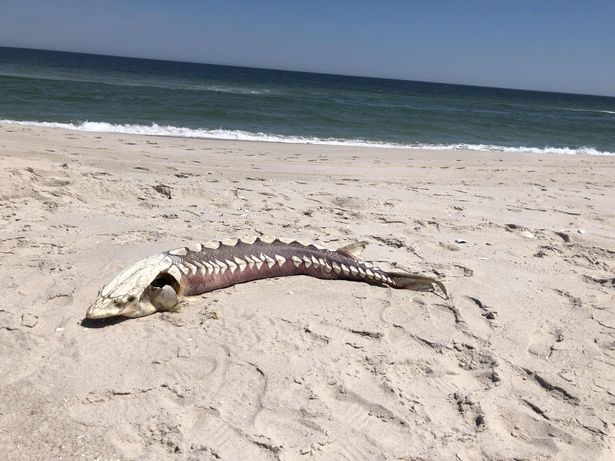
He captioned a photo of the fish on Facebook, “This 37-inch fish is a true member of the dinosaurs. It has no scales, only rows of hard plates called scutes. A bottom feeder, it will eat almost anything, including clams, mussels, and dead fish. Under its chin are four whiskers called barbels, which are used to sense the bottom for food. The mouth is hard and bony with no teeth. This is a small one; researchers have found them up to 160 pounds in the rivers and tributaries of the Chesapeake Bay and they can weigh over a thousand pounds in other parts of the world. Overfished to the point of almost being extinct, they were put on the endangered species list in 2012.”
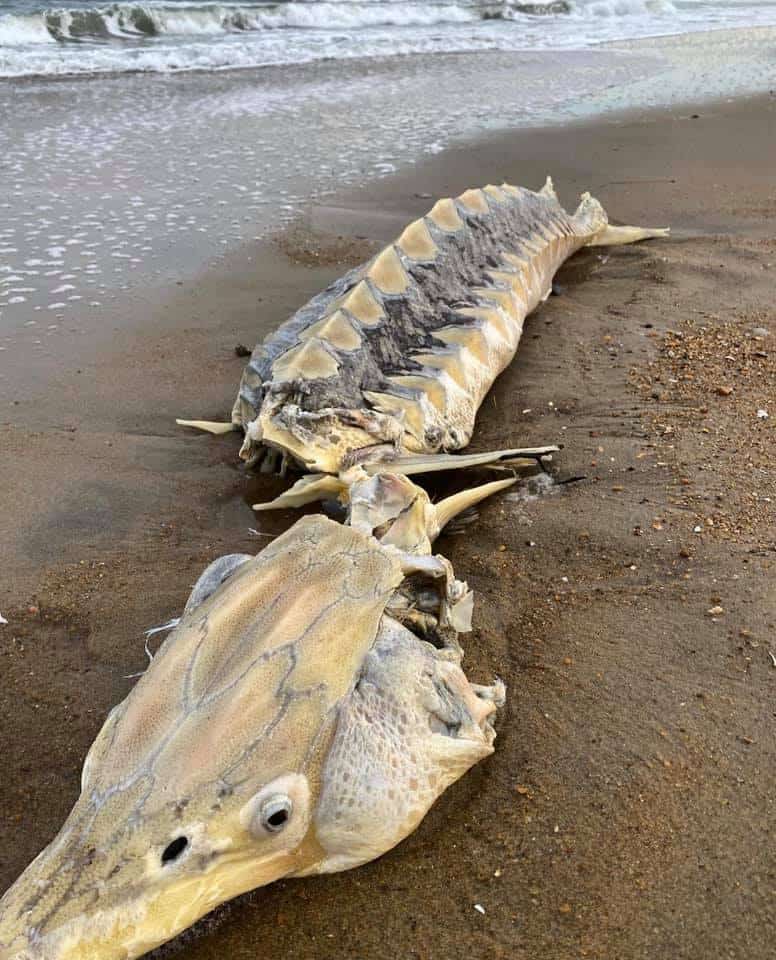
The Atlantic sturgeon is a prehistoric fish that can be found in rivers and coastal waters, and it can grow up to 14 feet in length.

